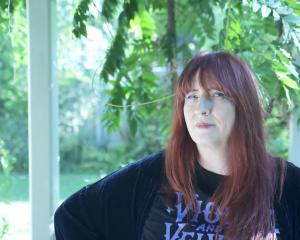

Both fell to Earth in the general vicinity of ''hard'' sci fi, investigating futures that were different yet recognisable. They explored the expansion of the human species into outer space, the technical challenges and the social evolution this grand project would require.
In Stephenson's novel, the impetus comes from a cosmic disaster that befalls Earth, before which a tiny fraction of humanity is sent into extraplanetary orbit to form a surviving community.
In Robinson's narrative, in a more distant future, an interstellar ''habitat'', a kind of high tech ark, is sent to the distant ''solar system'' of Tau Ceti to settle the Earth like planet Aurora, which has an atmosphere, water, gravity, and temperature range within the range of human tolerance.
Of course, the time scale is enormous and the process takes centuries, with generations living their entire lives on the ship.
The question is posed: how does a multigenerational human community survive or thrive in a hostile, literally anti life environment, and what does that mean for the individuals and societies involved?
While these may seem rarefied concerns, this is by no means the case.
There is discussion in real world technological circles about the need for humanity to spread out from Earth, for a variety of reasons, from a ''civilisational backup'' in case of planetary disaster, simply for economic purposes, or from the gloomy prognosis that the damage occurring to our living planet is probably terminal, which calls for a Plan B.
In this way, the best contemporary science fiction - futuristic, or speculative - is engaging with concepts in a more urgent, intellectually intense way than so called ''literary fiction''.
Aurora is not a short novel. It is dense, at times reflective and meandering.
It comprises several distinct parts, from life aboard the space habitat and its network of miniature environments called ''biomes'', to landfall on Aurora and the catastrophic failure of the mission, to the decisions that stem from this disaster.
The scope of Aurora is broad, even profound.
From the technical issues of maintaining an ecological balance in the closed loop of the biomes, to the political and ethical consequences of this contained and compressed existence, through to the development of the artificial intelligence ''mind'' of the Ship, which develops over centuries of interactions with humans from a supercomputer to a sentient being.
There are no simple or easy answers in this substantial novel to the questions it puts forward.
For all the strangeness of the setting, these are familiar questions: the meaning of existence, our responsibility to our descendants, the twin faces of human community and violent confrontation, and the uneasy tension between the intellectual ability of our tool making species, and the subjective experiences of our emotional, sensory and spiritual life.
The conclusion that Aurora suggests is that human life is made for Earth, specifically.
While the exploration, and perhaps settlement, of extraterrestrial environments is an inevitability, there is only one ''home'' for humanity.
While this is a novel of big ideas, set in the incomprehensible reaches of deep space, the central investigation is of the flawed lives and intricate web of relationships of people in circumstances not of our making, our shared human condition.
Victor Billot is editor of The Maritimes, the magazine of the Maritime Union.












